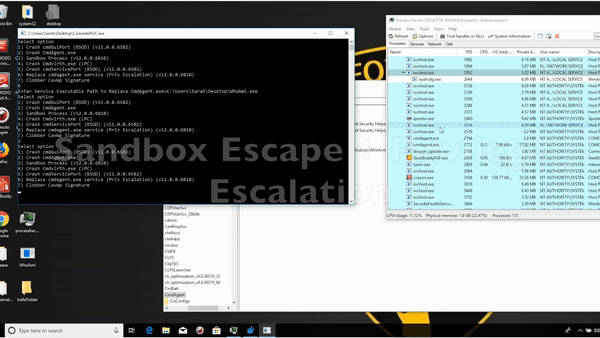- Apr 30, 2020
- 337
What sandbox would u use?
Suites are allowed too (COMODO,360,etc)
Suites are allowed too (COMODO,360,etc)
Edit: I don't believe so, but you can use Application Guard to run Edge Chromium.With Windows Sandbox, i note this comes with the legacy Edge Browser. Is there a way to replace/update this with the newer Chromium Edge Browser rather than it revert to legacy once the sandbox is closed and re-opened ?
Not most secure but very hard to break.Of the few remaining, Comodo is probably the most secure. But most people won't take the time, don't know how, or don't know they can adjust settings.
A properly configured Comodo firewall is formidable. I'm not saying it can't be beaten. Anything can. But I gather it isn't easy.

 medium.com
medium.com
Many avs have sandbox /virtualization sandboxIf sandbox as a security feature does eventually die out, I think Rollback or virtualization features could be the next thing after this.
~LDogg
I don't use AV from years...tell me please how many and which...Many avs have sandbox /virtualization sandbox
Windows sandbox?...best for security? It's as good as good and solid is Windows 10 that is in constant renovation...so why do you think that?Best for security VM, Windows Sandbox.
A hacker will run a debugger/ fuzzer and disassemble it anyway if it was closed software of course but open source would save them much time especially running an old hardware .Question about Sandboxie: it is free now and will be open source (in future): I am not a programmer, so apologize when this question is stupid
Open source means everyone can (re)view the source code. Would that give hackers an extra option to find vulnabilites?
As said I am not a programmer: how is the vetting/approval of open source software managed. Is is possible that hackers can slip-in code to create backdoors et cetera. How is the promotion of newly added code managed (e.g. from test to beta to production)? Which authority approves a change?

